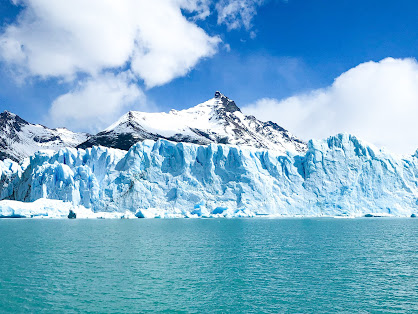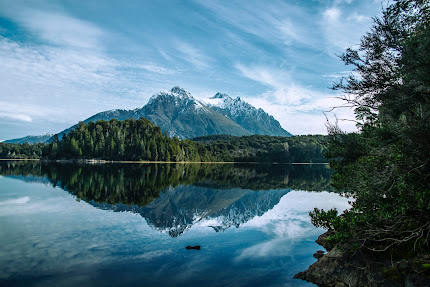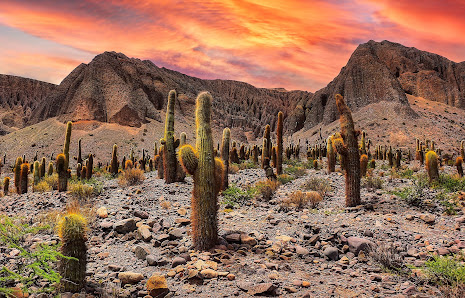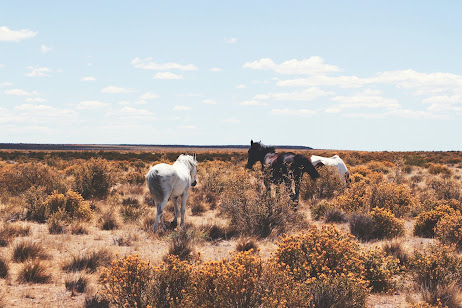The Very Best and Worst time to Visit Argentina - When to Go and What to See in 2025
Argentina, the land of tango, stunning landscapes, and rich cultural heritage, offers travelers a diverse range of experiences throughout the year. From the bustling streets of Buenos Aires to the breathtaking beauty of Patagonia, this South American gem has something for everyone. In this comprehensive guide, we'll explore the best and worst times to visit Argentina, highlight major places of interest, suggest activities, and provide information on connectivity to help you plan an unforgettable journey.
The Very Best and Worst time to Visit Argentina - When to Go and What to See
Best Times to Visit Argentina:
Spring (September to November):
- Pleasant
weather with blooming flowers and green landscapes.
- Ideal
for exploring Buenos Aires, Mendoza wine country, and the Lake District.
- Activities:
Wine tasting, hiking, and cultural festivals.
Fall (March to May):
- Mild
temperatures and beautiful fall foliage.
- Great
for wine enthusiasts touring the vineyards.
- Activities:
Wine tours, hiking, and attending local events.
Summer (December to February):
- Vibrant
festivals, including Carnival in February.
- Perfect
for exploring the Andes, Patagonia, and Argentina's stunning beaches.
- Activities:
Trekking, water sports, and beach vacations.
Winter (June to August):
- Excellent
for skiing and snowboarding in the Andes.
- Witness
the breathtaking landscapes covered in snow.
- Activities: Skiing, snowboarding, and winter sports.
Worst Times to Visit Argentina:
Late Summer (January and February):
- Crowded
tourist destinations and high accommodation prices.
- Extremely
hot weather in many regions, especially Buenos Aires.
Winter (June to August):
- Limited
accessibility to some remote areas due to heavy snowfall.
- Colder
temperatures, especially in the southern regions.
Major Places of Interest:
Buenos Aires - The Paris of South America
Overview: The vibrant
capital city of Buenos Aires is a cultural melting pot known for its European
architecture, passionate tango, and thriving arts scene.
Major Attractions:
- La
Boca: Explore the colorful Caminito Street and visit the Boca Juniors
stadium.
- Casa
Rosada: Tour the presidential palace and learn about Argentina's
history.
- Tango
Shows: Witness electrifying tango performances at local theaters and dance
halls.
Iguazu Falls - Natural Wonder
Overview: Iguazu Falls is
one of the world's most magnificent natural wonders, featuring a collection of
275 waterfalls spread across the Argentine and Brazilian borders.
Major Attractions:
- Garganta
del Diablo: Walk along catwalks to experience the awe-inspiring
"Devil's Throat."
- Boat
Tours: Get up close to the falls with exhilarating boat tours.
- Wildlife:
Spot a diverse array of wildlife in the surrounding rainforest.
Perito Moreno Glacier - Frozen Marvel
Overview: Located in Los
Glaciares National Park in Patagonia, the Perito Moreno Glacier is a colossal
ice formation renowned for its constant movement and stunning views.
Major Attractions:
- Trekking:
Hike on the glacier's surface and explore its crevasses.
- Viewing
Platforms: Watch and listen to the glacier calving into Lake Argentino
from designated viewing areas.
- Boat
Tours: Sail close to the glacier's towering walls.
Mendoza - Wine Country
Overview: Mendoza, in the
foothills of the Andes, is the heart of Argentina's wine country, producing
some of the world's finest wines.
Major Attractions:
- Wine
Tours: Visit wineries, enjoy tastings, and explore the vineyards.
- Aconcagua:
Hike to the base camp of South America's highest peak, Mount Aconcagua.
- Cultural
Festivals: Experience local traditions, including folk music and
dance.
Bariloche - Alpine Charm
Overview: San Carlos de
Bariloche, often simply called Bariloche, is a picturesque town in the Andes
known for its Swiss-like architecture and outdoor activities.
Major Attractions:
- Cerro
Catedral: Ski and snowboard in the winter, or hike and mountain bike
in the summer.
- Nahuel
Huapi Lake: Enjoy water sports, fishing, and scenic boat rides.
- Chocolate
Shops: Savor the town's delicious chocolate, with a Swiss influence.
Ushuaia - End of the World
Overview: Ushuaia, in
Tierra del Fuego, is the southernmost city in the world and serves as the
gateway to Antarctica.
Major Attractions:
- Tierra
del Fuego National Park: Explore the pristine wilderness, hike trails,
and visit the southernmost post office.
- Beagle
Channel: Take boat trips to see penguins, sea lions, and breathtaking
scenery.
- Antarctic
Adventures: Join tours and cruises to the frozen continent.
Salta - Colonial Beauty
Overview: Salta, in
northwestern Argentina, is famous for its well-preserved colonial architecture,
rugged landscapes, and vibrant culture.
Major Attractions:
- Cafayate:
Visit this wine-producing town and its stunning red rock formations.
- Train
to the Clouds: Experience a breathtaking journey on one of the world's
highest railroads.
- Salta
Cathedral: Admire the historic architecture of this colonial-era
cathedral.
Valdes Peninsula - Wildlife Haven
Overview: The Valdes
Peninsula, a UNESCO World Heritage site, is a wildlife sanctuary where visitors
can see whales, seals, penguins, and more.
Major Attractions:
- Whale
Watching: Witness the magnificent southern right whales along the
coast.
- Punta
Tombo: Observe the world's largest colony of Magellanic penguins.
- Sea
Lion Reserves: See sea lions, orcas, and diverse bird species.
Connectivity:
Argentina has well-developed infrastructure
and offers various transportation options:
- Air Travel: Ezeiza International Airport in Buenos Aires is the primary gateway for international travelers. Domestic flights connect major cities and regions.
- Bus
Services: Extensive bus networks provide affordable and comfortable travel
within the country. Long-distance buses are an excellent option for budget
travelers.
- Trains:
Argentina's train system connects some cities and regions, offering scenic
journeys through the countryside.
- Rental
Cars: Renting a car allows for flexibility, especially when exploring
rural areas and the Andes.
- Ferries:
Ferries operate to connect Buenos Aires with Uruguay and other coastal
destinations.
Argentina's diverse landscapes, rich culture,
and vibrant cities make it an enticing destination year-round. Choosing the
best time to visit depends on your interests and the experiences you seek.
Whether you're sipping wine in Mendoza, dancing the tango in Buenos Aires, or exploring
the natural wonders of Patagonia, Argentina promises a memorable adventure.
Plan your trip wisely, and you'll fall in love with the beauty and warmth of
this remarkable country.
For more information and travel planning, you can visit
official tourism websites like:
- Argentina
Travel: www.argentina.travel
- Buenos
Aires Tourism: www.turismo.buenosaires.gob.ar
Remember to check travel advisories and visa requirements
before your trip for a smooth and enjoyable experience.
Related Reads:
- The Very Best and Worst time to Visit Santorini - When to
Go and What to See
- The
Very Best and Worst time to Visit Koh Samui - When to Go and What to See
- The
Very Best and Worst time to Visit Tokyo - When to Go and What to See
- The
Very Best and Worst time to Visit Copenhagen - When to Go and What to See
- The
Very Best and Worst time to Visit Budapest - When to Go and What to See
- The
Very Best and Worst time to Visit Bora Bora - When to Go and What to See
- The
Very Best and Worst time to Visit Istanbul - When to Go and What to See
- The Very Best and Worst time to Visit Borneo - When to Go and What to See
- The Very Best and Worst time to
Visit Kenya - When to Go and What to See











